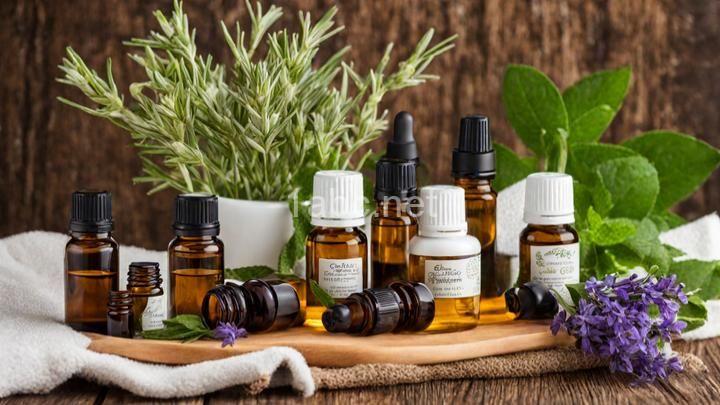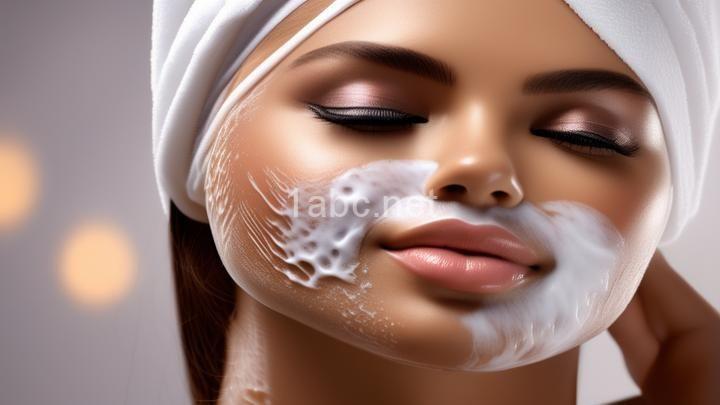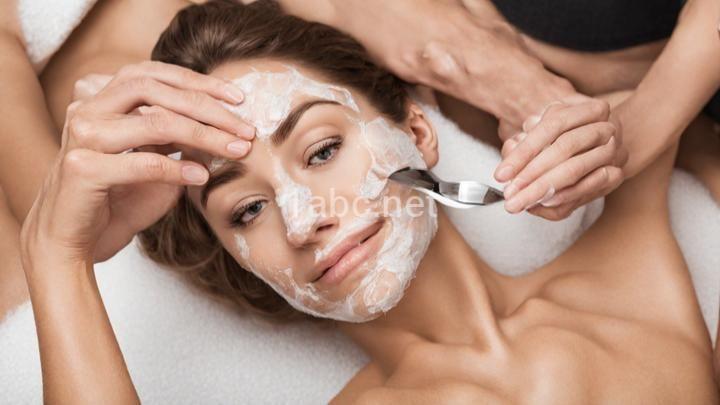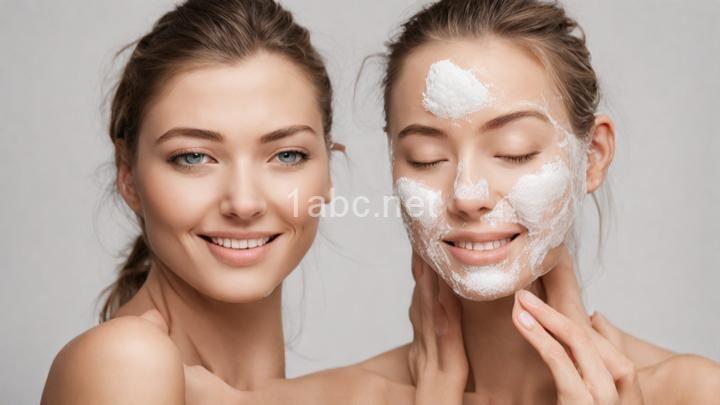How to Incorporate Essential Oils into Your Nighttime Skin Care Routine

Introduction:
Welcome to dorenelashay9177! In this blog post, we are going to dive into the wonderful world of essential oils and explore how they can transform your nighttime skin care routine. We all know the importance of taking care of our skin, especially before we hit the hay. But what if we told you that by incorporating essential oils into your routine, you can take your skin care game to a whole new level? Intrigued? Well, keep reading, because we're about to spill all the secrets!
I. Understanding Essential Oils:
To kick things off, let's start by understanding what essential oils actually are. Essential oils are concentrated liquids that are derived from plants. They are usually extracted through methods like steam distillation or cold pressing. These oils are highly potent and contain the essence of the plant they are derived from, along with their amazing natural properties.
There are a wide variety of essential oils available in the market, each with its own unique benefits. Some common ones that are widely used in skincare include lavender oil, tea tree oil, rosehip oil, and frankincense oil, just to name a few. However, it is important to note that not all essential oils are created equal. It's crucial to ensure that you are using high-quality, pure essential oils to reap the maximum benefits.
II. Preparing Your Skin:
Before we dive into the specifics of incorporating essential oils into your nighttime routine, let's talk about the importance of preparing your skin. Just like you need a clean canvas to create a beautiful painting, you need a clean face to achieve healthy, glowing skin.
Start by cleansing your face thoroughly with a gentle cleanser suitable for your skin type. This will remove any dirt, oil, and impurities that have accumulated throughout the day. Cleansing is the foundation of any skincare routine and sets the stage for the products you'll be using afterward.
In addition to cleansing, exfoliating is another essential step in preparing your skin. Exfoliation helps to slough off dead skin cells, revealing fresh, radiant skin underneath. It also allows for better absorption of the essential oils you'll be applying later on. Choose a gentle exfoliator that suits your skin type and use it 2-3 times a week for best results.
III. Choosing the Right Essential Oil for Your Skin Type:
Now that your skin is prepped and ready, let's talk about choosing the right essential oil for your skin type. Different essential oils offer different benefits, so it's important to select ones that address your specific skin concerns.
For dry skin, essential oils like rosehip oil, argan oil, and jojoba oil work wonders. These oils are deeply hydrating and nourishing, providing the much-needed moisture your skin craves.
If you have oily or acne-prone skin, tea tree oil, lavender oil, and lemon oil are your go-to options. These oils have antibacterial and anti-inflammatory properties that help to control oil production and calm down any existing breakouts.
For those concerned about aging skin, essential oils like frankincense oil, rose oil, and neroli oil are your best friends. These oils are packed with antioxidants and have skin rejuvenating properties that can help reduce the appearance of fine lines and wrinkles.
It's important to note that essential oils are very potent, and a little goes a long way. Always dilute them with a carrier oil (such as coconut oil or jojoba oil) before applying them directly to your skin.
IV. Incorporating Essential Oils into Your Nighttime Routine:
Now that you've got a good grasp on essential oils and have chosen the ones that suit your skin type, it's time to incorporate them into your nighttime routine. Here's a step-by-step guide on how to do that:
1. Facial Steam:
Start your nighttime routine with a relaxing facial steam. This helps to open up your pores, allowing the essential oils to penetrate deeper into your skin. Fill a bowl with hot water, add a few drops of your chosen essential oil, and drape a towel over your head to create a steam tent. Take deep breaths and enjoy the soothing experience for 5-10 minutes.
2. Cleansing:
After your facial steam, it's time to cleanse your face again. Double cleansing is key here. Use an oil-based cleanser to remove any makeup or sunscreen, followed by a gentle foaming cleanser to get rid of any remaining impurities. To make your cleansing routine even more luxurious, add a drop or two of your chosen essential oil to your cleanser for added benefits.
3. Toner or Facial Mist:
Once your face is clean, it's time to tone or use a facial mist. Toners help to balance your skin's pH levels and prepare it for the next steps of your routine. If you prefer a facial mist, spritz it all over your face to refresh and hydrate your skin. To take it up a notch, add a few drops of an appropriate essential oil to your toner or facial mist. This will give your skin an extra boost of nourishment and enhance the overall effectiveness of your routine.
4. Serum or Face Oil:
After toning, it's time to apply a serum or face oil. These products are concentrated with active ingredients that target specific skin concerns. Choose a serum or face oil that complements your skin type and concerns. To incorporate essential oils, simply add a few drops of your chosen oil to your serum or face oil and mix it well. Gently massage it into your skin using upward motions, allowing the product to penetrate deeply and work its magic.
5. Moisturizer:
The next step is moisturizing, which is crucial for locking in moisture and keeping your skin hydrated throughout the night. Choose a moisturizer that suits your skin type and concerns. To elevate its benefits, add a few drops of an appropriate essential oil to your moisturizer and mix it well before applying. This will provide an extra layer of nourishment and leave your skin feeling soft and supple.
6. Facial Massage:
Last but not least, end your nighttime routine with a relaxing facial massage. Not only does this help to improve blood circulation and promote lymphatic drainage, but it also helps to relieve tension and stress. Mix a few drops of your chosen essential oil with a carrier oil, such as jojoba oil or sweet almond oil, and gently massage your face in upward and outward motions. Take your time and enjoy the moment of self-care.
Conclusion:
Congratulations! You've now unlocked the secrets to incorporating essential oils into your nighttime skin care routine. By understanding the different types of essential oils, preparing your skin properly, choosing the right oils for your skin type, and following the step-by-step guide we provided, you're well on your way to achieving healthy, glowing skin.
Remember, everyone's skin is unique, so don't be afraid to experiment and find what works best for you. Always perform a patch test before incorporating any new products into your routine to ensure that you don't have any adverse reactions.
Now, go ahead and pamper yourself with some essential oil magic. Your skin will thank you for it!
FREQUENTLY ASKED QUESTIONS
Why should I incorporate essential oils into my nighttime skincare routine?
Incorporating essential oils into your nighttime skincare routine can provide numerous benefits for your skin. Essential oils are concentrated plant extracts that contain potent properties that can nourish and rejuvenate your skin while you sleep.One of the main reasons to use essential oils in your nighttime skincare routine is their ability to hydrate and moisturize the skin. Many essential oils, such as lavender and rosehip, have moisturizing properties that can help prevent dryness and keep your skin feeling soft and supple.
Essential oils also have anti-aging benefits. Many oils, such as frankincense and geranium, contain antioxidants that can help reduce the appearance of fine lines and wrinkles. These oils can also promote collagen production, which can improve the elasticity and firmness of your skin.
Furthermore, essential oils can help balance the skin's natural oil production. If you have oily or acne-prone skin, using essential oils like tea tree or jojoba can help regulate oil production and reduce the occurrence of breakouts.
In addition to their skincare benefits, incorporating essential oils into your nighttime routine can also have a positive impact on your overall well-being. Many essential oils have calming and soothing properties that can help promote relaxation and improve sleep quality. Oils like lavender and chamomile can help create a peaceful atmosphere, allowing you to unwind and prepare for a restful night's sleep.
When incorporating essential oils into your nighttime skincare routine, it's important to dilute them properly with a carrier oil, such as jojoba or almond oil, to avoid any potential skin irritation. Additionally, it's always recommended to perform a patch test before applying any new essential oil to your face.
By incorporating essential oils into your nighttime skincare routine, you can enhance the effectiveness of your skincare products and enjoy the numerous benefits they offer for your skin and well-being.
How do I choose the right essential oil for my skin type?
When choosing the right essential oil for your skin type, there are a few factors to consider. First, it's important to understand your skin type - whether it's dry, oily, combination, or sensitive. Once you know your skin type, you can select an essential oil that addresses your specific concerns.For dry skin, essential oils like rosehip, lavender, and chamomile can help moisturize and nourish your skin. These oils are known for their hydrating properties and can help soothe any dryness or flakiness.
If you have oily skin, essential oils such as tea tree, lemon, and peppermint can be beneficial. These oils have astringent properties that can help regulate oil production and reduce the appearance of blemishes.
Combination skin can benefit from essential oils like geranium, ylang-ylang, and patchouli. These oils can help balance oil production and promote an even complexion.
Sensitive skin requires extra care, so it's best to choose gentle essential oils like chamomile, calendula, and helichrysum. These oils have soothing and calming properties that can help alleviate redness and irritation.
When selecting essential oils, make sure to choose high-quality, pure oils. Avoid synthetic fragrances or oils that contain additives, as they may cause skin irritation.
It's also important to do a patch test before applying any essential oil to your face. Apply a small amount to a small area of your skin and wait for 24 hours to see if any adverse reactions occur.
Remember, everyone's skin is unique, so what works for one person may not work for another. It's always a good idea to consult with a dermatologist or skincare professional for personalized advice based on your specific skin concerns.
How should I dilute essential oils before applying them to my skin?
When diluting essential oils for skin application, it's important to follow proper guidelines to ensure safety and effectiveness. Here's how you can dilute essential oils before applying them to your skin:
-
Choose a carrier oil: Carrier oils are gentle, neutral oils that help dilute and carry essential oils onto the skin. Some commonly used carrier oils include jojoba oil, coconut oil, almond oil, and grapeseed oil. Select a carrier oil that suits your skin type and preferences.
-
Determine the dilution ratio: The dilution ratio refers to the amount of essential oil to carrier oil. It's generally recommended to start with a low dilution ratio, especially if you have sensitive skin or are using the essential oil for the first time. A common dilution ratio is 1% to 3% for adults, which means adding 1 to 3 drops of essential oil per teaspoon (5 mL) of carrier oil.
-
Mix the oils: In a small container, combine the desired amount of carrier oil with the appropriate number of drops of essential oil. Gently stir or shake the mixture to ensure thorough blending.
-
Patch test: Before applying the diluted essential oil to a larger area, it's important to conduct a patch test. Apply a small amount of the mixture to a small area of your skin, such as the inner forearm. Wait for 24 hours to check for any adverse reactions like redness, itching, or irritation. If any discomfort occurs, discontinue use.
-
Apply to the skin: Once you've ensured that the diluted essential oil is safe for your skin, you can proceed to apply it to the desired area. Gently massage the mixture onto the skin using circular motions until fully absorbed.
Remember, essential oils are highly concentrated and potent, so proper dilution is crucial to prevent skin irritation or adverse reactions. If you have any concerns or specific skin conditions, it's advisable to consult with a qualified aromatherapist or healthcare professional for personalized guidance.
When should I apply the essential oil in my nighttime skincare routine?
Incorporating essential oils into your nighttime skincare routine can be a great way to nourish and pamper your skin. The timing of when to apply essential oils can vary depending on your specific needs and preferences. One common approach is to apply essential oils after cleansing your face and before applying your moisturizer. This allows the oils to penetrate the skin and provide their benefits without any barriers. However, it's important to note that essential oils are highly concentrated and potent, so it's crucial to dilute them properly before application.
If you prefer a more targeted approach, you can also mix a few drops of essential oil with your moisturizer and apply it together. This ensures that the oil is evenly distributed and gives your skin a boost of hydration.
Keep in mind that everyone's skin is different, and what works for one person may not work for another. It's always a good idea to do a patch test on a small area of your skin before using any new product, including essential oils. This will help you determine if you have any sensitivities or allergies to the oil.
Ultimately, the best time to apply essential oils in your nighttime skincare routine is when it feels most comfortable and beneficial for you. Experiment with different methods and observe how your skin responds to find the perfect balance for your needs.


